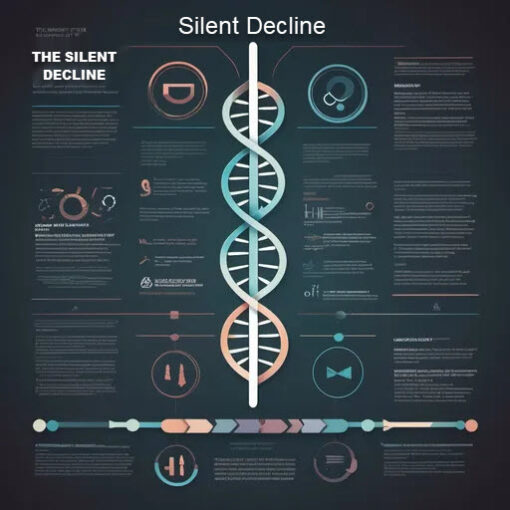Introduction to Male Fertility
 Definition of Male Fertility and Its Importance
Definition of Male Fertility and Its Importance
Male fertility refers to a man’s ability to produce healthy sperm that can fertilize an egg. This process is vital for reproduction. Healthy male fertility is essential for couples desiring children. It plays a significant role in family planning and population growth. Various factors impact male fertility, including lifestyle choices, environmental influences, and genetic predispositions.
Overview of Sperm Count as a Key Indicator
Sperm count is a primary measure of male fertility. It indicates the number of sperm present in a man’s ejaculate. A healthy sperm count typically ranges from 15 million to over 200 million sperm per milliliter of semen. Studies show a concerning trend of sperm count decline over the past few decades. This decline is affecting male fertility rates globally. Low sperm count is often linked to fertility issues in couples trying to conceive.
Brief Introduction to Infertility Issues in Men
Infertility is defined as the inability to conceive after one year of unprotected intercourse. Approximately one in six couples faces infertility issues. Male infertility accounts for about 30-50% of these cases. Factors contributing to male infertility include low sperm count, poor sperm motility, or abnormal sperm morphology. Understanding these issues is crucial for effective treatment and improving male fertility.
Historical Context of Sperm Count
Analysis of Sperm Count Data Over the Last Century
Over the past century, data on sperm count has shown a significant decline. Research indicates that average sperm counts have dropped by more than 50% since the 1970s. This decline correlates with rising cases of infertility among men. Various studies across different countries consistently report this trend. The focus on male fertility has become more pronounced as data supports the idea that sperm count decline is a global issue.
Key Studies and Their Findings on Sperm Count Trends
Several key studies have shaped the understanding of sperm count over the last century. One notable study was conducted by the World Health Organization in the 1990s. It compiled data from around the world, revealing a trend of decreasing sperm counts in men. Another influential piece of research published in 2017 reaffirmed this decline. It analyzed samples from men in North America, Europe, and Australia, noting a concerning reduction in sperm quality and count. These findings highlight a growing concern about the implications of infertility.
Changes in Male Fertility Definitions Over the Years
The definition of male fertility has evolved significantly over the last century. Initially, male fertility was primarily defined by the ability to father children. However, with the decline in sperm counts, definitions have expanded. Current definitions now include sperm quality, count, and overall reproductive health. This shift reflects a broader recognition of infertility in men. Researchers now consider factors such as environmental influences and lifestyle choices as key contributors to male fertility issues.
Factors Contributing to Sperm Count Decline
Impact of Environmental Factors
Environmental factors play a significant role in male fertility. Pollution is widespread, affecting air, water, and soil. Chemicals found in pesticides and industrial products contribute to sperm count decline. These toxins disrupt hormonal balance, leading to infertility. Heavy metals like lead and mercury are especially harmful. They accumulate in the body and impair reproductive functions. The link between pollution and reduced sperm count is concerning. Men face increased risks due to exposure to these harmful substances.
Lifestyle Changes
Modern lifestyle choices significantly affect male fertility. Diet is crucial for maintaining healthy sperm production. A diet high in processed foods can lead to deficiencies in essential nutrients. Smoking and excessive alcohol consumption have negative impacts on sperm health. Both habits reduce testosterone levels and lower sperm count. Additionally, sedentary lifestyles contribute to obesity, further worsening fertility issues. These lifestyle factors combine to create a challenging environment for male fertility.
Role of Health Issues
Health issues such as obesity and diabetes greatly influence infertility. Obesity leads to hormonal imbalances that can affect sperm production. Studies show that overweight men often experience lower sperm counts. Diabetes also plays a role, as it can damage blood vessels and nerves. This damage affects sexual function and fertility. Managing weight and health conditions is essential for improving male fertility. Addressing these health issues can help mitigate the risk of infertility.
The Global Rise of Infertility Rates
Statistics on Male Infertility Rates Worldwide
The statistics on male infertility rates reveal alarming trends. Recent studies indicate that nearly 15% of couples globally face infertility issues. Of these, a significant portion of cases can be attributed to male factors. Data shows that male infertility accounts for about 50% of all infertility cases. This creates a pressing public health concern. In developed nations, sperm count decline correlates with rising infertility rates.
Correlation Between Declining Sperm Count and Infertility Cases
There is a direct correlation between declining sperm count and rising infertility cases. Research suggests that average sperm counts have dropped by more than 50% over the past several decades. Higher instances of infertility among men coincide with this decline. Various factors may contribute to this phenomenon, including lifestyle choices, environmental toxins, and overall health. This decline does not only affect the ability to conceive but also increases anxiety among couples trying to conceive.
Emotional and Psychological Effects of Infertility on Men
Infertility can profoundly affect men’s emotional and psychological well-being. Many men experience feelings of inadequacy and failure when faced with infertility. The inability to conceive often leads to stress and anxiety, impacting relationships and mental health. Support networks are crucial, yet many men do not seek help. The stigma surrounding male infertility can lead to isolation and depression. Acknowledging emotional struggles is essential for coping with infertility.
Current Research and Future Directions
Recent Advancements in Understanding Male Fertility
Recent studies shed light on male fertility and the concerning sperm count decline. Researchers have identified environmental factors impacting male fertility. Chemicals found in plastics may disrupt hormonal balance. Studies also link lifestyle choices to decreased sperm quality. Understanding the biological mechanisms behind infertility opens new avenues for treatment.
Emerging Treatments and Solutions for Low Sperm Count
Innovative treatments target low sperm count issues. Hormonal therapy shows promise for those affected by infertility. In addition, assisted reproductive technologies provide solutions. Sperm retrieval techniques improve chances for couples facing male fertility challenges. Genetic testing becomes crucial in identifying underlying issues. As research progresses, personalized treatment plans may emerge.
Predicting Future Trends in Male Fertility and Infertility
The future of male fertility research appears optimistic yet cautious. Experts predict increasing awareness of the sperm count decline. Public health initiatives may rise to address infertility concerns. Future studies will likely explore the impact of diet and exercise on male fertility. In addition, ongoing research may lead to groundbreaking discoveries. The focus will remain on understanding and addressing male infertility.
Conclusion
Recap of Male Fertility Significance
The last century has shown a notable sperm count decline, impacting male fertility. This decline brings rising concerns about infertility among men. Understanding the significance of sperm count is crucial, as it directly correlates with overall reproductive health. Men’s fertility issues can affect families and society as a whole. The implications become clear when we consider how infertility can strain relationships and lead to emotional distress.
Call to Action for Research and Awareness
To combat male infertility, we must prioritize research on sperm count decline. Increased funding and focused studies will help identify the root causes. Public awareness campaigns can educate men about their reproductive health. It is vital to encourage men to seek help early if they suspect infertility. Raising awareness will also promote healthy lifestyle choices that can improve male fertility. We need proactive measures to address potential factors affecting sperm count.
Addressing Infertility Challenges
Infertility is a complex issue with multiple contributing factors. Understanding these challenges is essential for effective solutions. Lifestyle changes, medical interventions, and support systems can aid men facing infertility. By addressing these issues collaboratively, we can enhance male fertility outcomes. Recognizing the need for action is the first step toward tackling the sperm count decline and infertility challenges men face. Building a supportive environment can make a significant difference in men’s reproductive health.


 Definition of Male Fertility and Its Importance
Definition of Male Fertility and Its Importance


